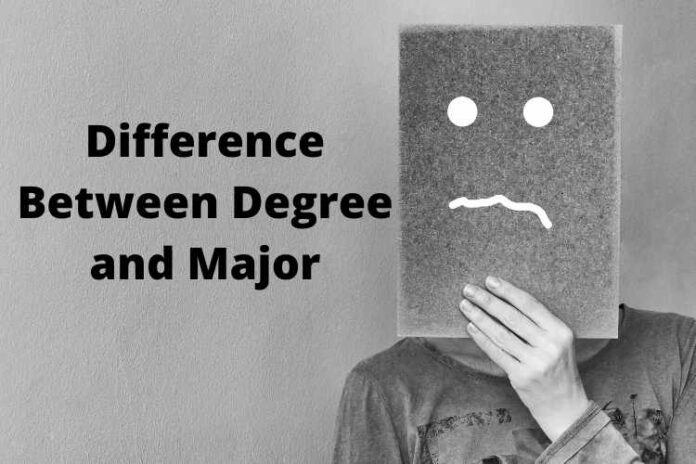One of the difficulties of starting college is that there are so many different terminology and components to keep track of that things may rapidly get confused. One distinction you’ll want to consider is the difference between a degree and a major. You may be asked what major you’ve selected, but what precisely does this entail, and how does it differ from the degree?
The simple answer is that you will receive a degree if you have completed all of the graduation requirements, and your major is the more particular field of study you concentrated on while earning your degree. While there are numerous sorts of degrees based on broad subjects (see below), the word “major” refers to distinct specializations within a discipline. We’ve broken out some of the main distinctions below.
What Is the Difference Between a Degree and a Major?
It’s tempting to compare and contrast college degrees and majors, stressing how they’re completely different and unrelated. But it’s not that easy.
A major and a college degree are closely related, but they are not the same thing, similar to the distinction between a college and a university.
Let’s have a look at this Bachelor of Science in the Psychology degree plan. Psychology would be your major if this was your degree plan. Your ultimate degree would be a Bachelor of Science in Psychology when it was given to you.
As you can see, obtaining a bachelor’s degree necessitates the completion of a specific number of General Education (GE) courses. After you’ve completed the majority of these, you can go on to your main courses. You may be granted your bachelor’s degree once you have completed all of these prerequisites.
Another way to think about it is that your major offers you the tools in your belt, but your degree is the tool belt that supports and structures those tools.
Major Differences
- A degree is a curriculum that covers a variety of topics. A major consists of only one subject and perhaps a few others that are related to it.
- A bachelor’s degree requires 120 credit hours to accomplish. A total of 36 credit hours in the major of the student’s choosing must be obtained through this. However, depending on the nation, this figure may fluctuate.
- A degree includes both a major and a minor.
- A degree is determined by the major chosen. As a result, biology major will lead to a bachelor’s degree in biology.
- A degree necessitates the attendance of more classes than a major.
Summary
- The term “degree” is frequently used in conjunction with the term “major.”
- “Degree” refers to a broad category of college education, whereas “major” refers to a specific course of study.
- A degree may be utilized by students with a variety of majors, but the term major is reserved for a certain group of people who specialize in a particular subject.
- While there are several sorts of degrees, there is only one type of major.
Conclusion
The majority of people choose to pursue a degree. However, in recent years, there have been examples of students choosing the unorthodox path of working without completing their education. Many students in America are currently unable to pay the hefty tuition expenses associated with pursuing higher education. Although student loans and scholarships are available, the high costs make life difficult for college students.
Obtaining a degree is a difficult and time-consuming undertaking that necessitates one’s undivided focus for an extended length of time. A degree, on the other hand, will provide you with the information you need to succeed in the workplace.
There has been an upsurge in the number of people taking online courses in recent years. With the advent of the internet, courses that were previously unavailable online are now available to people all over the world.
RELATED – Difference Between RN and LVN
I hope this blog is sufficient enough to clarify the Difference Between Degree and Major.






















